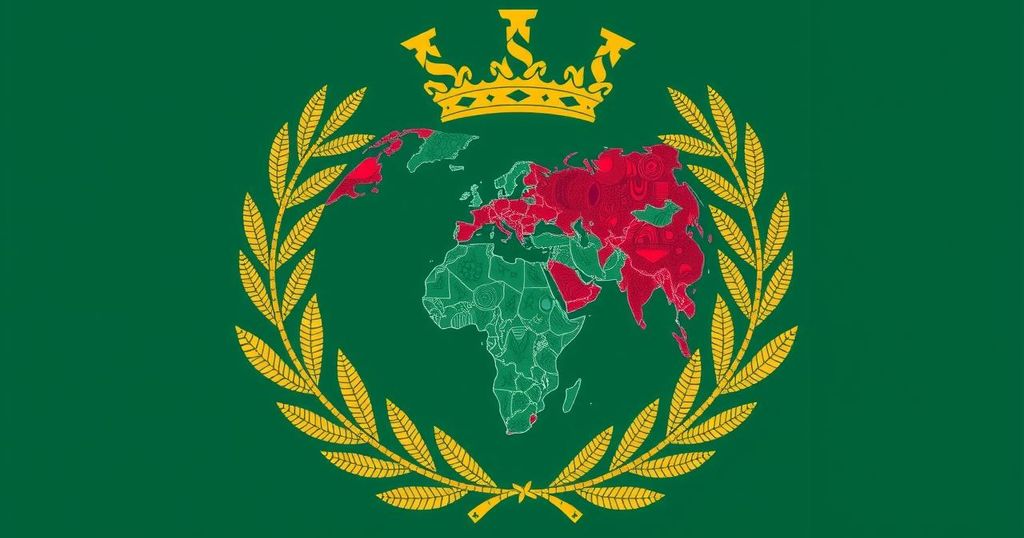The Commonwealth Heads of Government Meeting (CHOGM) in Samoa is addressing climate change and the controversial issue of reparations for the transatlantic slave trade. Leaders from 56 Commonwealth countries, including King Charles III, are discussing the significant threats posed by climate change, especially to vulnerable Pacific island nations. While UK Prime Minister Kier Starmer indicated reparations would not be a formal agenda item, discussions surrounding it are likely, particularly from CARICOM-based advocates who are pushing for recognition of historical injustices.
The Commonwealth Heads of Government Meeting (CHOGM) convenes in Samoa with a significant focus on addressing critical issues, notably climate change and the ongoing discourse surrounding reparations for the transatlantic slave trade. Leaders from 56 countries, inclusive of representatives from the Commonwealth and the United Kingdom’s King Charles III, have gathered to engage in discussions essential to member nations, particularly those vulnerable due to their geographic and climatic circumstances. The summit has brought to light the pressing threat posed by climate change. Numerous leaders emphasized the urgency of the situation, citing that many Commonwealth nations, particularly small island states, are experiencing perilous environmental changes. Antonio Guterres, Secretary-General of the United Nations, has underscored that ocean temperatures in the Pacific Islands are increasing at a rate thrice that of global averages, thus placing local communities and their livelihoods at immense risk. For example, Australian Foreign Minister Penny Wong has declared, “Climate change is an existential threat. It is the number one national security threat. It is the number one economic threat to the peoples of the Pacific and to many members of the Commonwealth.” Discussions during CHOGM are expected to yield a declaration pertaining to ocean protection as leaders assess the consequences of rising sea levels, which compel communities to relocate. Moreover, the summit revisits the contentious issue of reparations linked to the legacy of slavery. While British Prime Minister Kier Starmer indicated that the topic would not be formally addressed in the summit’s agenda, he remains open to dialogue with leaders who wish to pursue the matter. The Caribbean Community (CARICOM) and the African Union have been particularly active in advocating for reparations from former colonial powers for historical injustices. Kingsley Abbott, the director of the University of London’s Institute of Commonwealth Studies, emphasized the significance of reconvening on reparations discourse, stating, “It is a priority for many of the Commonwealth’s member countries and whenever those affected by atrocities ask to talk, there should always be a willingness to sit down and listen.” In this context, CARICOM has initiated a commission to formally seek reparations, arguing that the effects of slavery have led to enduring social inequalities. Historically, from the 15th to the 19th centuries, at least 12.5 million Africans were forcibly taken and sold into slavery, with a significant number of them laboring under brutal conditions in the Americas. The discussions at CHOGM underscore both the imperative of innovative policies to combat climate change and the vital need for reconciliation regarding reparations, forming a collective step toward addressing historical grievances and future sustainability.
The Commonwealth Heads of Government Meeting (CHOGM) serves as a platform for leaders from member nations to address pressing global issues, particularly those pertinent to nations historically affected by colonialism and slavery. Climate change presents an existential threat to many of these nations, especially vulnerable island states in the Pacific, prompting discussions about ocean protection policies. Additionally, the ongoing struggle for reparations related to the transatlantic slave trade continues to gain attention, particularly driven by advocates for Caribbean nations affected by colonial exploitation. Given the historical context, where millions were forcibly displaced and their descendants still face the impacts of systemic inequality, the dialogue on reparations is increasingly seen as necessary for achieving equity and justice. The discussions at CHOGM represent an important moment for these nations to not only address environmental concerns but also engage with historical injustices.
The CHOGM conference in Samoa symbolizes a critical juncture for Commonwealth nations, centering on crucial discussions surrounding climate change and the legacy of slavery. As climate change intensifies, small island nations are at the forefront of advocating for protective measures against rising sea levels. Concurrently, the dialogue on reparations highlights the necessity of addressing historical wrongs while promoting equity among member states. The outcome of these discussions could significantly impact future policies and relationships within the Commonwealth community, reinforcing the need for both environmental stewardship and reparative justice.
Original Source: www.swissinfo.ch






